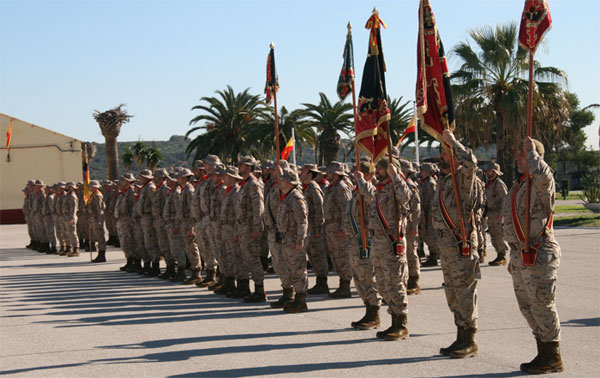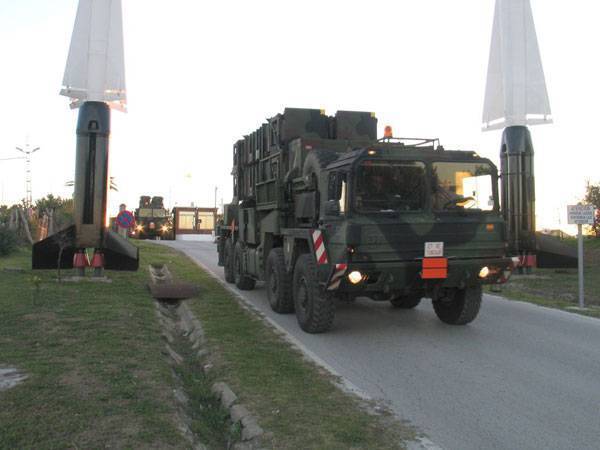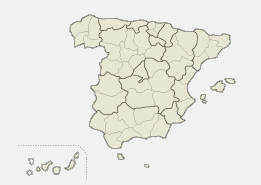- Home
- International Missions
- Turkey
- Despliegue Patriot
Patriot deployment
Deployment of Patriot batteries in Turkey
Due to the civil war in Syria and the consequent instability on its border with Turkey, particularly the potential threat posed by the uncontrolled firing of missiles, the Turkish government requested NATO’s assistance. The Alliance responded by launching an operation to help protect Turkish airspace in January 2013.
In response to the Turkish request, the 74th Anti-Aircraft Artillery Regiment of the Spanish Army (RAAA 74, by its Spanish acronym) has set up a Patriot contingent to engage in a mission which will be both defensive and deterrent. It will relieve the Dutch units currently in the area and will deploy six Patriot missile launchers and their associated radar system at Adana Airport.
The Spanish contingent complements similar units already deployed by the United States and Germany in Kahramanmaras and Gaziantep respectively. It is expected to remain in Turkey for a year, with two successive rotational forces each staying six months.
The contingent, made up of 150 soldiers led by a commander, includes command and control personnel capable of manning an Operations Centre, a Command HQ, a Patriot Firing Battery and a Support Unit. The first batch of troops and materiel was shipped to Turkey at the end of 2014. The bulk of the contingent will be flown over the first two weeks of January, and relief of the Dutch contingent at Adana Airport will be completed by the end of the month.
By participating in this mission Spain is contributing to international security and reaffirming its commitment to NATO and its member states at a time when stability in the region has been shaken.

The contingent during the farewell ceremony (Photo: RAAA 74)

Patriot materiel leaving RAAA 74 HQ (Photo: RAAA 74)
Launch of the “Active Fence” operation
From the moment the Spanish soldiers taking part in this NATO mission relieved the Dutch contingent they have been manning the Patriot batteries 24/7. Most of them come from the 9th Battery of RAAA 74’s Group 1, which has its HQ in San Roque (Cádiz), but there are also members of General HQ and of the Anti-Aircraft Artillery Command Signals Unit.
Their lives are organised around eight-hour shifts: on-duty, rest and on-call. That will be their routine over the next six months – and of those who replace them for six more months after that. Their aim is to be fully battle ready at all times, because a missile attack requires a swift response without any hesitation or slips.
The rotational force, made up of around 150 soldiers, was flown into Turkey in two batches at the beginning of January. They have been stationed at the Incirlik Air Base, a joint Turkish-American facility, where they have their living quarters. When on duty they commute to the nearby location of the batteries at Adana Airport, as the Turkish government specified when the mission was launched.
The materiel – Patriot missile launchers and associated radar system – was transported by sea aboard the Spanish Navy ships Camino Español and Martín Posadillo, which left the port of Algeciras at the end of the year and arrived at the port of Iskenderun two weeks later. The materiel was revised and deployed and it was fully operational by 26 January, when command was transferred from the Dutch to the Spaniards – as symbolised in the handover of the NATO flag from one chief to the next. That ceremony marked the moment when the Spaniards took over responsibility for securing Turkish skies in the framework of the NATO operation dubbed “Active Fence” – together with the American and German troops also stationed along the Syrian border.
All forces involved are equipped with different versions of Patriot batteries, while the Turkish army is not. Which is why NATO launched this operation deploying its antimissile system in 2013, when the conflict in neighbouring Syria intensified. The mission also involves the NATO early warning system based in Ramstein (Germany); its screens will detect any attack that might occur and will assign response to one of the batteries depending on missile trajectory.
ARMY UNITS
- Araba Álava |
- Albacete |
- Alicante |
- Almería |
- Asturias |
- Ávila |
- Badajoz |
- Barcelona |
- Burgos |
- Cáceres |
- Cádiz |
- Cantabria |
- Castellón |
- Ceuta |
- Ciudad Real |
- Córdoba |
- A Coruña |
- Cuenca |
- Girona |
- Granada |
- Guadalajara |
- Gipuzkoa |
- Huelva |
- Huesca |
- Islas Baleares |
- Jaén |
- León |
- Lleida |
- Lugo |
- Madrid |
- Málaga |
- Melilla |
- Murcia |
- Navarra |
- Ourense |
- Palencia |
- Las Palmas |
- Pontevedra |
- La Rioja |
- Salamanca |
- Segovia |
- Sevilla |
- Soria |
- Tarragona |
- Santa Cruz de Tenerife |
- Teruel |
- Toledo |
- Valencia |
- Valladolid |
- Bizkaia |
- Zamora |
- Zaragoza



